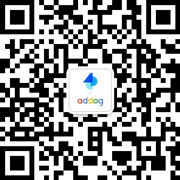本案例默认翻译为中文,点击可切换回原语言
已切换成原语言,点击可翻译成中文
我们可以做到
案例简介:概要 凤凰城大学是美国女生比例最高的大学,有20,000多名女性毕业于科技领域,这一比例10% 高于全国平均水平,该大学对帮助女性在一个众所周知的行业中取得成功并不陌生大多为男性。三名IS & T院长中有两名是女性,其中女性获得了超过1,000,000美元的奖学金。但是还有工作要做。美国2024年需要填补440万个技术职位。女性可以帮助填补这些工作。他们只是没有被邀请进来。像编码女孩和高迪盒子这样的倡议正在做邀请年轻女孩加入的重要工作。问题是,当他们的毕业生进入劳动力大军时,他们的工作不会在2020年或更晚实现。现在需要做更多的事情。科技训练营为成年人提供了快速解决方案,但它们要求学生搁置生活-这对职业女性和母亲来说是沉重的负担。通过提供适合女性生活的高效技术计划,并通过财富500的雇主合作伙伴关系提供导师,凤凰城大学可以在技能差距上做出更直接的削减。 战略 由于凤凰城大学的大多数毕业生是女性,她们的勇气和生活经验使她们完全是科技行业需要的人的类型,因此大学团结起来支持她们,并赋予她们重塑行业所需的技能和指导是有意义的。邀请妇女加入不仅会对经济产生影响,还会影响其他妇女和女孩。减少技能差距和填补空缺职位刺激增长,成为榜样挑战 “coder bro” 刻板印象。最终,这项运动激发了女性考虑从事科技事业; 但这也是针对任何重视创新思维的人的运动。无论是男性还是女性,让更多的女性参与科技领域符合我们所有人的最大利益,因为不同的视角带来了帮助我们所有人崛起的突破。 结果 这部电影获得了2100万多个观看次数,并且该活动引起了搜索流量的371% 提升,这是迄今为止教育广告客户的最高品牌搜索提升。缩小科技领域的性别差距将是一项持续的努力。就该行业填补的工作岗位而言,现在看到重大、具体的成果还为时过早。但是,在凤凰城大学平台上的社交聆听,网站访问量的增加以及对IS & T学校的信息请求表明,该运动产生了影响并激发了人们的兴趣。激励女性提问,并考虑科技领域的新职业道路。 执行 这部动画电影在全国广播和在线上发起了这项运动,并得到了科技网站上赞助的社论的支持,这些网站以真正的女性毕业生为榜样。该大学与百事可乐联手实施了 “百万女性导师计划”,以帮助缩小STEM和科技领域的性别差距。来自该大学信息系统与技术学院的48名顶尖女学生与百事可乐IT领导者配对,获得20小时的职业建议和资源。 运动描述 它始于一个坚强的女性角色的复兴,这个女性角色曾经激励女性进入20世纪40年代的制造业-另一个传统上由男性主导的行业。凤凰城大学为现代重新启动了标志性的 “铆钉师罗西” 运动,以激励女性从事科技职业。动画短片使铆钉师罗西 (Rosie) 与 “罗莎 (Rosa)” 的故事21世纪,罗莎 (Rosa) 是一位单身母亲,她的制造工作因自动化而丧生。受罗茜·铆钉海报的启发,她回到学校,开始了IT (信息技术) 的新职业。通过选择适应,她超越了自己的环境。 项目结果简介 目前,科技行业绝大多数是男性,只有26% 女性代表。如果保持这种状态,将没有足够的人来填补美国2024年将创造的440万个技术职位,但是有成千上万的有能力的女性,通过适当的教育和技能,可以填补这些职位。这为邀请女性考虑从事科技职业提供了绝佳的机会。我们需要女性介入,填补这些高薪工作,并为依靠创新蓬勃发展的行业带来新的思维和新的视角。历史上还有一个时期,需要女性来填补男性主导的行业的空缺职位。在第二次世界大战期间,铆钉师罗西 (Rosie the Riveter) 成为标志性人物,促使数百万美国女性进入制造业。如今,罗西 (Rosie) 的 “我们可以做到” 激发了现代女性承担男性主导的信息技术产业。只是这一次,是 “我们能做到”。
我们可以做到
案例简介:Synopsis The University of Phoenix graduates the highest percentage of female students in the U.S. And with more than 20,000 women graduated into the tech field, a ratio 10% higher than the national average, the university is no stranger to helping women succeed in an industry known to be mostly male. Two of the three IS&T deans are women, and over $1,000,000 in scholarships has been awarded to women in IT. But there’s still work to be done. The U.S. needs to fill 4.4 million tech jobs by 2024. Women could help fill these jobs. They just haven’t been invited in. Initiatives like Girls Who Code and Goldie Box are doing important work inviting young girls in. The problem is, their work won’t be realized until 2020 or later when their graduates enter the workforce. Something more needs to be done now. Tech boot camps provide quick solutions for adults but they require students to put their lives on hold – a heavy burden for working women and mothers. By providing efficient tech programs that fit in women’s lives, and providing mentors via fortune 500 employer partnerships, University of Phoenix can make a more immediate dent in the skills gap. Strategy Since the majority of University of Phoenix graduates are women, whose grit and life experience make them exactly the type of people the tech industry needs, it makes sense for the university to rally behind them and empower them with the skills and mentorship needed to reshape an industry. Inviting women in will not only make an impact on the economy, it will impact other women and girls. Reducing the skills gap and filling open positions stimulates growth, becoming a role model challenges the “coder bro” stereotype. Ultimately, this campaign inspires women to consider a career in tech; but it’s also a campaign for anyone who values innovative thinking. Male or female, it’s in all of our best interests to get more women in tech, because diverse perspectives lead to breakthroughs that help all of us rise. Outcome The film received over 21 million views and the campaign caused a 371% lift in search traffic, the highest branded search lift for an educational advertiser to date. Closing the gender gap in tech will be an ongoing effort. It’s too soon to see major, concrete results in terms of jobs filled in the industry. However, social listening on University of Phoenix platforms, increased web site visits and requests for information for the IS&T school shows that the campaign made an impact and inspired interest. Motivating women to ask questions and consider a new career path in tech. Execution The animated film launched the campaign on national broadcast and online and was supported with sponsored editorial on tech sites featuring real female graduates working in tech as role models. The university joined forces with Pepsi to implement a “Million Women Mentors Program” to help reduce the gender gap in STEM and tech fields. 48 top female students from the University’s College of Information Systems and Technology were paired with PepsiCo IT leaders to receive 20 hours of career advice and resources. CampaignDescription It began with the revival of a strong female character who once inspired women to enter manufacturing – another traditionally male-dominated industry – back in the 1940s. University of Phoenix rebooted the iconic “Rosie the Riveter” campaign for the modern day, in an effort to inspire women to pursue careers in tech. The animated short brings Rosie the Riveter into the 21st century with the story of “Rosa,” a single mom who loses her manufacturing job to automation. Inspired by her Rosie the Riveter poster, she goes back to school and starts a new career in IT (Information Technology). She rises above her circumstances by choosing to adapt. BriefWithProjectedOutcomes Right now, the tech industry is overwhelmingly male, with only 26% female representation. And if it stays this way, there simply won’t be enough people to fill the 4.4 million tech jobs that will be created in the U.S. by 2024 But there are thousands of capable women who, with the right education and skills, could fill these positions. This presents a perfect opportunity to invite women to consider a career in tech. We need women to step in, fill these well-paying jobs, and bring fresh thinking and a new perspective to an industry that thrives on innovation. There was another time in history when women were needed to fill open positions in a male-dominated industry. During WWII, Rosie the Riveter became an iconic figure who motivated millions of American women to enter the manufacturing workforce. Today, Rosie’s “We Can Do It” inspires modern women into taking on the male-dominated Information Technology industry. Only this time, it’s “We Can Do IT”.
We Can Do IT
案例简介:概要 凤凰城大学是美国女生比例最高的大学,有20,000多名女性毕业于科技领域,这一比例10% 高于全国平均水平,该大学对帮助女性在一个众所周知的行业中取得成功并不陌生大多为男性。三名IS & T院长中有两名是女性,其中女性获得了超过1,000,000美元的奖学金。但是还有工作要做。美国2024年需要填补440万个技术职位。女性可以帮助填补这些工作。他们只是没有被邀请进来。像编码女孩和高迪盒子这样的倡议正在做邀请年轻女孩加入的重要工作。问题是,当他们的毕业生进入劳动力大军时,他们的工作不会在2020年或更晚实现。现在需要做更多的事情。科技训练营为成年人提供了快速解决方案,但它们要求学生搁置生活-这对职业女性和母亲来说是沉重的负担。通过提供适合女性生活的高效技术计划,并通过财富500的雇主合作伙伴关系提供导师,凤凰城大学可以在技能差距上做出更直接的削减。 战略 由于凤凰城大学的大多数毕业生是女性,她们的勇气和生活经验使她们完全是科技行业需要的人的类型,因此大学团结起来支持她们,并赋予她们重塑行业所需的技能和指导是有意义的。邀请妇女加入不仅会对经济产生影响,还会影响其他妇女和女孩。减少技能差距和填补空缺职位刺激增长,成为榜样挑战 “coder bro” 刻板印象。最终,这项运动激发了女性考虑从事科技事业; 但这也是针对任何重视创新思维的人的运动。无论是男性还是女性,让更多的女性参与科技领域符合我们所有人的最大利益,因为不同的视角带来了帮助我们所有人崛起的突破。 结果 这部电影获得了2100万多个观看次数,并且该活动引起了搜索流量的371% 提升,这是迄今为止教育广告客户的最高品牌搜索提升。缩小科技领域的性别差距将是一项持续的努力。就该行业填补的工作岗位而言,现在看到重大、具体的成果还为时过早。但是,在凤凰城大学平台上的社交聆听,网站访问量的增加以及对IS & T学校的信息请求表明,该运动产生了影响并激发了人们的兴趣。激励女性提问,并考虑科技领域的新职业道路。 执行 这部动画电影在全国广播和在线上发起了这项运动,并得到了科技网站上赞助的社论的支持,这些网站以真正的女性毕业生为榜样。该大学与百事可乐联手实施了 “百万女性导师计划”,以帮助缩小STEM和科技领域的性别差距。来自该大学信息系统与技术学院的48名顶尖女学生与百事可乐IT领导者配对,获得20小时的职业建议和资源。 运动描述 它始于一个坚强的女性角色的复兴,这个女性角色曾经激励女性进入20世纪40年代的制造业-另一个传统上由男性主导的行业。凤凰城大学为现代重新启动了标志性的 “铆钉师罗西” 运动,以激励女性从事科技职业。动画短片使铆钉师罗西 (Rosie) 与 “罗莎 (Rosa)” 的故事21世纪,罗莎 (Rosa) 是一位单身母亲,她的制造工作因自动化而丧生。受罗茜·铆钉海报的启发,她回到学校,开始了IT (信息技术) 的新职业。通过选择适应,她超越了自己的环境。 项目结果简介 目前,科技行业绝大多数是男性,只有26% 女性代表。如果保持这种状态,将没有足够的人来填补美国2024年将创造的440万个技术职位,但是有成千上万的有能力的女性,通过适当的教育和技能,可以填补这些职位。这为邀请女性考虑从事科技职业提供了绝佳的机会。我们需要女性介入,填补这些高薪工作,并为依靠创新蓬勃发展的行业带来新的思维和新的视角。历史上还有一个时期,需要女性来填补男性主导的行业的空缺职位。在第二次世界大战期间,铆钉师罗西 (Rosie the Riveter) 成为标志性人物,促使数百万美国女性进入制造业。如今,罗西 (Rosie) 的 “我们可以做到” 激发了现代女性承担男性主导的信息技术产业。只是这一次,是 “我们能做到”。
We Can Do IT
案例简介:Synopsis The University of Phoenix graduates the highest percentage of female students in the U.S. And with more than 20,000 women graduated into the tech field, a ratio 10% higher than the national average, the university is no stranger to helping women succeed in an industry known to be mostly male. Two of the three IS&T deans are women, and over $1,000,000 in scholarships has been awarded to women in IT. But there’s still work to be done. The U.S. needs to fill 4.4 million tech jobs by 2024. Women could help fill these jobs. They just haven’t been invited in. Initiatives like Girls Who Code and Goldie Box are doing important work inviting young girls in. The problem is, their work won’t be realized until 2020 or later when their graduates enter the workforce. Something more needs to be done now. Tech boot camps provide quick solutions for adults but they require students to put their lives on hold – a heavy burden for working women and mothers. By providing efficient tech programs that fit in women’s lives, and providing mentors via fortune 500 employer partnerships, University of Phoenix can make a more immediate dent in the skills gap. Strategy Since the majority of University of Phoenix graduates are women, whose grit and life experience make them exactly the type of people the tech industry needs, it makes sense for the university to rally behind them and empower them with the skills and mentorship needed to reshape an industry. Inviting women in will not only make an impact on the economy, it will impact other women and girls. Reducing the skills gap and filling open positions stimulates growth, becoming a role model challenges the “coder bro” stereotype. Ultimately, this campaign inspires women to consider a career in tech; but it’s also a campaign for anyone who values innovative thinking. Male or female, it’s in all of our best interests to get more women in tech, because diverse perspectives lead to breakthroughs that help all of us rise. Outcome The film received over 21 million views and the campaign caused a 371% lift in search traffic, the highest branded search lift for an educational advertiser to date. Closing the gender gap in tech will be an ongoing effort. It’s too soon to see major, concrete results in terms of jobs filled in the industry. However, social listening on University of Phoenix platforms, increased web site visits and requests for information for the IS&T school shows that the campaign made an impact and inspired interest. Motivating women to ask questions and consider a new career path in tech. Execution The animated film launched the campaign on national broadcast and online and was supported with sponsored editorial on tech sites featuring real female graduates working in tech as role models. The university joined forces with Pepsi to implement a “Million Women Mentors Program” to help reduce the gender gap in STEM and tech fields. 48 top female students from the University’s College of Information Systems and Technology were paired with PepsiCo IT leaders to receive 20 hours of career advice and resources. CampaignDescription It began with the revival of a strong female character who once inspired women to enter manufacturing – another traditionally male-dominated industry – back in the 1940s. University of Phoenix rebooted the iconic “Rosie the Riveter” campaign for the modern day, in an effort to inspire women to pursue careers in tech. The animated short brings Rosie the Riveter into the 21st century with the story of “Rosa,” a single mom who loses her manufacturing job to automation. Inspired by her Rosie the Riveter poster, she goes back to school and starts a new career in IT (Information Technology). She rises above her circumstances by choosing to adapt. BriefWithProjectedOutcomes Right now, the tech industry is overwhelmingly male, with only 26% female representation. And if it stays this way, there simply won’t be enough people to fill the 4.4 million tech jobs that will be created in the U.S. by 2024 But there are thousands of capable women who, with the right education and skills, could fill these positions. This presents a perfect opportunity to invite women to consider a career in tech. We need women to step in, fill these well-paying jobs, and bring fresh thinking and a new perspective to an industry that thrives on innovation. There was another time in history when women were needed to fill open positions in a male-dominated industry. During WWII, Rosie the Riveter became an iconic figure who motivated millions of American women to enter the manufacturing workforce. Today, Rosie’s “We Can Do It” inspires modern women into taking on the male-dominated Information Technology industry. Only this time, it’s “We Can Do IT”.
我们可以做到
暂无简介
We Can Do IT
暂无简介
基本信息
- 广告战役: #University Of Phoenix-网络-5af2#
- 广告品牌: University of Phoenix
- 发布日期: 2000
- 行业领域: 互联网服务 , 文娱/内容
- 媒体类别: 海报/平面
- 广告语言: 英语
- 媒介平台: 网络
- 获得奖项:
暂无评分
已有{{caseInfo.tatolPeople}}人评分
创作者
案例详情
涵盖全球100万精选案例,涉及2800个行业,包含63000个品牌
热门节日97个,23个维度智能搜索
-

项目比稿
品类案例按时间展现,借鉴同品牌策略,比稿提案轻松中标
-

创意策划
任意搜索品牌关键词,脑洞创意策划1秒呈现
-

竞品调研
一键搜索竞品往年广告,一眼掌握对手市场定位
-

行业研究
热词查看洞悉爆点,抢占行业趋势红利
登录后查看全部案例信息
如果您是本案的创作者或参与者 可对信息进行完善







